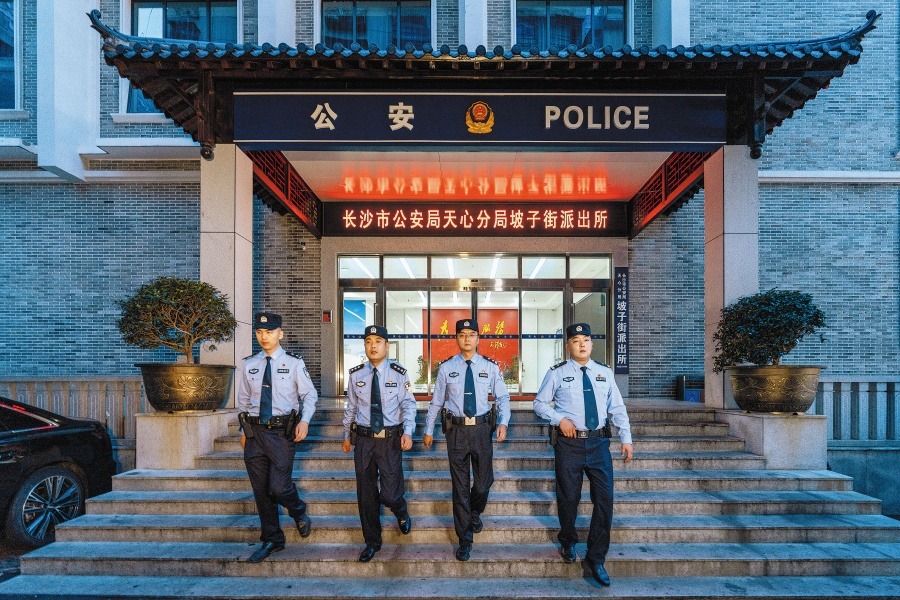Footsteps of bygone villagers retraced

Chongqing– In the year 2020, the drive to eradicate poverty nationwide came to a successful conclusion, and Chongqing in the Southwest of China, has achieved its set goals throughout the municipality, including 18 towns and villages that were previously classified as "deeply impoverished" due to their remote locations, lack of transportation links, underdevelopment, and the shortage of vital services such as health, education, and adequate housing.
The policy was focused on assuring security in the basic needs of food and clothing for all citizens, while social safety nets were put in place to ensure that education and healthcare no longer threatened families with unmanageable financial burdens.
In addition, renovations were made to village homes to make sure they were up to standard in terms of structural integrity and fittings. Together, this policy was dubbed the Two Non-Concerns and Three Guarantees.
However, the story of poverty alleviation in Miaotang, a once extremely remote community deep in the mountains of Wushan county, Chongqing, began this process early in 2007 through the innovative approach of mass relocation, where people moved to more developed villages with modern links to major urban centers.
Spectacular valleys beset township with isolation
A small collection of mainly abandoned homes now serves as a reminder that this former community once stood inside the Wulipo Nature Reserve, Chongqing Wushan county. However, even reaching this remote location involves an epic drive along narrow cliff-edge tracks cut into the precipitous mountainsides, while multiple sharp bends often test nervous dispositions with sheer drops towards the valley floor hundreds of meters below.
The dramatic beauty of this towering mountain valley cannot help but imprint the soul with great awe for Mother Nature. Jagged karst peaks extend skywards as they vie for prominence, while vast canopies of lush vegetation interspersed with stark rockfaces are practically forbidden territory for human exploration.
Miles of perilous and inaccessible roads were always the greatest source of anguish for the impoverished villagers of Miaotang. While a core aim for poverty alleviation has been to improve the lives of people based in their native environments, in the case of Miaotang, the potential cost of building high-quality paved access roads into the township alone was estimated at around $23.5 million.
However, since considerable distances also separated the five villages of Miaotang, the additional task of connecting the villages by road would have raised the total cost to $31.5 million, an astronomical figure considering the relatively low number of villagers recorded in excess of 2,300 people.
Neither did this figure include the costs projected for building networks to connect the township with running water and electrical power, as well as the provision of public services and cultural facilities like schools, so when the decision was made to offer the choice of relocation, the overall budget needed to settle the villagers in more developed areas of Wushan county was estimated at a far more palatable $6.3 million.
The feasibility of mass relocation was not only limited to financial considerations. Given the extreme isolation, villagers were compelled to engage in behaviors detrimental to the principles of ecological protection, especially as Miaotown township is located within the boundaries of Wulipo Nature Reserve, which was afforded its status among a batch of 21 such areas nationwide by the State Department in 2013.
As Wulipo sits in a tributary region of the Yangtze River, this area is home to a wide variety of animal species that vied for survival with their human neighbors. The primeval forests are home to wild bears, goats, and hogs, which depend on the natural environment, but the lack of coal and gas meant that villagers had to regularly cut and burn firewood, which damaged their habitats and polluted the air. Had they remained in Miaotang, ecological protection goals would have been impossible to meet.
Living standards and access to sustainable livelihoods were another important consideration in light of the policy of Two Non-Concerns and Three Guarantees. Since the highly impractical option of developing schools, hospitals, and utilities in Miaotang was both financially prohibitive and environmentally destructive, the resettlement of villagers into other regions of Wushan, the neighboring county of Wuxi, and even adjacent areas in Hubei Province has meant their fundamental needs in terms of poverty alleviation have been successfully catered for.
Since the relocation policy was first proposed in the year 2007, the villagers have accepted resettlement on a voluntary basis, with the vast majority of households electing to start new lives in various locations across the region. However, 127 individuals chose to remain behind in Miaotang township, where they instead collected into a single village under the jurisdiction of Pinghe township, a move that also led to improvements in their living conditions and livelihoods.























